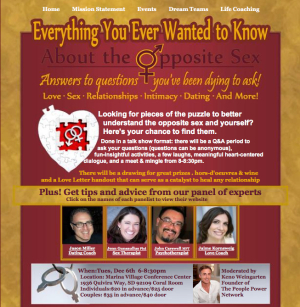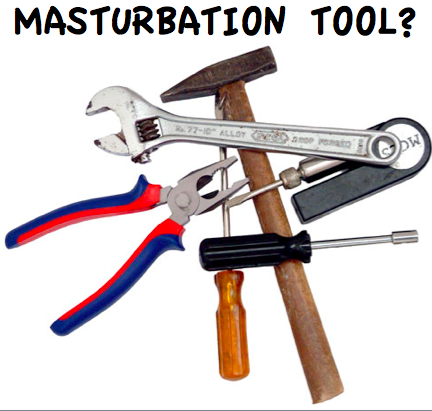How Negative Body Image Can Affect Your Sex Life
/
~Dr. Jenn Gunsaullus, San Diego, CA -- Sex Therapy, Marriage Counseling, Sex Speaker, College Sexual Health Speaker
Dr. Jenn Gunsaullus, sociologist and sexologist, writes her sex advice and gender commentary blog. The sex blog includes relationship advice, free sex education videos, sex tips, sex-positive mindfulness, and podcast interviews.
~Dr. Jenn Gunsaullus, San Diego, CA -- Sex Therapy, Marriage Counseling, Sex Speaker, College Sexual Health Speaker
"Problems are only as big as we make them.”
 http://collegecandy.com/author/llhubbard/page/2/A client shared this with me recently. She and her husband use this idea as a reminder to not make problems any bigger than they have to be. They choose to focus on their joys instead of their fears. Through our work on mindfulness and positive psychology, and their commitment to their marriage, they created this powerful mantra.
http://collegecandy.com/author/llhubbard/page/2/A client shared this with me recently. She and her husband use this idea as a reminder to not make problems any bigger than they have to be. They choose to focus on their joys instead of their fears. Through our work on mindfulness and positive psychology, and their commitment to their marriage, they created this powerful mantra.
Pretty wise for 24-year-olds.
To develop mindfulness, I encouraged them to notice or reflect on their thoughts, emotions, and sensations. Sometimes a situation results in just a reaction without thought, and it seems you have no choice in your reaction. Mindfulness can reveal an opportunity to respond differently. I also encouraged them to end each day by sharing three gratitudes for that day with each other. In addition, if they felt sucked down by negativity during the day, they could choose to “flip the switch” to positivity, and instead shift their focus to something for which they felt appreciation.
Small shifts like these can have a big impact on a relationship. Clearly these shifts are working for this couple, as the husband recently shared:
I decided that the problems were small, and the rewards large, so I just don’t pay much attention to them anymore….Please know that you have helped guide us from a tragic situation to one of the highest levels of intimacy and satisfaction. I didn’t think it was possible to feel this giddy beyond the infatuation phase, but now I know you can feel in love every second of your life. Thank you Dr. Jenn.
They may be thanking me, but each of them is doing the hard work of retraining their brains. It’s not easy, but we have a lot more power and control over our emotional states and reactions than we realize. Sometimes it feels downright excruciating to break our automatic patterns. However, as this couple attests, through the pain of change, is the glory of intimacy.
(This was originally posted as the weekly Love & Sex Blog for Pacific San Diego Magazine.)
~Dr. Jenn Gunsaullus, San Diego, CA -- Sex Therapy, Marriage Counseling, Sexologist, Sexual Health Motivational Speaker
In this episode, Dr. Jenn interviews Rose Hartzell, PhD, a sex therapist, about the sexual risks faced by baby boomer women. Many older women don't know they are at risk!
SEXUAL FUN FACT
What does the male red-back spider do after it has sex with a female red-back spider? SPECIAL DEN SEX-TION
SPECIAL DEN SEX-TION
Female erotic plasticity -- What's THAT mean?!
~Dr. Jenn Gunsaullus, San Diego, CA -- Sex Therapy, Marriage Counseling, and College Sexual Health Speaker
Have you been cheated on? What do you think about paying for meals? What about women who are dominant in the bedroom?
I was interviewed as a San Diego Sex Therapist on the Fox 5 Morning News last week, and this is Part 2 of the segment we did with seven bachelors (Part 1 is HERE). They handled themselves very well :) I was on the news promoting an event called Everything You Ever Wanted to Know About the Opposite Sex.

CLICK ON PHOTO TO VIEW VIDEO
~Dr. Jenn Gunsaullus, San Diego Sex Therapy, Marriage Counseling, College Sexual Health Speaker
Everything You Ever Wanted to Know About the Opposite Sex...Event
Is that a lot of things? Men and women have quite a few differences regarding sex, intimacy, communication, and relationships, and if we don't understand and respect them, it can be pretty frustrating!
 Everything You Ever Wanted to Know About the Opposite SexThis event brings together a panel of experts in sex therapy (me :), marriage & family therapy, dating, and love, to answer the questions from the audience and discuss the most common misconceptions and trouble areas. The audience will have the opportunity to reflect and interact about what's on their mind.
Everything You Ever Wanted to Know About the Opposite SexThis event brings together a panel of experts in sex therapy (me :), marriage & family therapy, dating, and love, to answer the questions from the audience and discuss the most common misconceptions and trouble areas. The audience will have the opportunity to reflect and interact about what's on their mind.
There will be wine and mingling at the end of the discussion. $20 in advance.
To register or learn more, go to this informational page.
“In my sex life, I’ve just been a tool for men's masturbation.”
A woman in her mid-20s said this to me. She said that she and another female friend had realized this harsh reality about their sex lives. And they weren’t pleased with this realization.
 What does this mean – “a masturbation tool for men”? To me it means being sexually passive. It means women not knowing and owning their sexuality. It may mean men acting out what they’ve watched in porn… and women feeling like they are only there for men’s pleasure. It sounds like it’s based on fear, embarrassment, performance-focus, and disconnect.
What does this mean – “a masturbation tool for men”? To me it means being sexually passive. It means women not knowing and owning their sexuality. It may mean men acting out what they’ve watched in porn… and women feeling like they are only there for men’s pleasure. It sounds like it’s based on fear, embarrassment, performance-focus, and disconnect.
What it DOESN’T mean is good sex. And for the woman I spoke to, it doesn’t mean self-respect. This unfortunately isn’t a simple topic to tackle, as it involves many layers of socialization, gender roles, fear, shame, culture, religion, assumptions, and miscommunication. I think it is complicated for both women and men.
What can you do if you find yourself in this passive “tool” role? Start by asking what you like or don’t like in sexual activity. If you don’t know, think about when you ever felt the most sexual excitement. Next, ask yourself why you have sex? Go beyond the obvious and consider more “uncomfortable” reasons, such as feeling validated, getting attention, obligation, or drunkenness. Another young woman shared with me that the main reason she had sex was because it was easier than saying no. This is pretty heavy. Do you think that your reasons for sex match with the reasons that your partners wanted sex? There’s likely a mismatch here.
Finally, take a big picture approach to determining how to move forward through this “tool” role, to one with more pleasure and ownership. Consider each of the following five categories and how you’d like to grow in each, as connected to your sex life: physical, mental, emotional, social, and spiritual. Every week, choose a different category and commit to exploring what you’ve written down. The most important component in this process is compassion for yourself. Walking through these steps doesn’t mean that anything is wrong with you; it just means that you’re open to growing and embracing this valuable process.
Dr. Jenn is a sociologist and relationship & sexuality speaker who challenges our cultural beliefs around sex, sexual consent, gender roles, and health intimacy, with a mindfulness and compassionate approach. Her site includes a sex blog, free sex education videos, sexuality speaking information, and mindfulness resources.